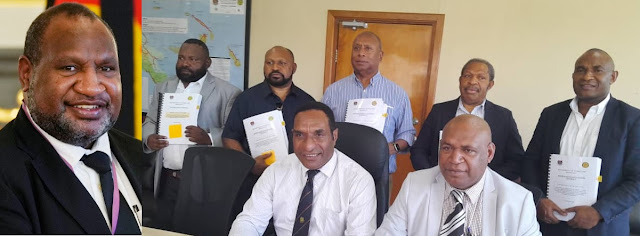Connect PNG Unveiled: A Tale of Ambition, Scandal, and the Quest for Accountability
By M.J Passingan
In the heart of Papua New Guinea (PNG), a storm brews over the ambitious Connect PNG initiative, a program that ostensibly aims to revolutionize the nation's infrastructure landscape. What was launched with the promise of connecting remote communities and fostering economic growth has spiraled into a scandal of monumental proportions, exposing the underbelly of political maneuvering and alleged financial misconduct at the highest levels of government.
The controversy came to light when a brave whistleblower leaked Department of Finance records, revealing a staggering K350 million payment to certain Connect PNG contractors on the same day as the Port Moresby riots. This revelation sent shockwaves through the nation, drawing sharp criticism from notable figures, including former Prime Minister Peter O’Neill. Known for his outspoken nature, O’Neill condemned the exploitation of a noble initiative for what he described as the largest and most sophisticated money laundering scheme in PNG's history.
O’Neill, while expressing support for the initiative's infrastructure goals and Prime Minister James Marape's developmental aspirations, couldn't hide his dismay at the blatant misuse of taxpayer money and donor contributions. Among the questionable transactions was a K13 million payment to Ipwenz Construction, a company owned by a figure previously caught in a controversial incident involving cash transportation with Marape's son. This incident, among others, painted a grim picture of prioritization, where political affiliations seemingly dictated the flow of substantial public funds at the expense of critical national needs.
The former Prime Minister's critique extended beyond specific payments, touching on the broader implications of such practices for PNG's democratic and economic fabric. He lambasted the government's apparent indifference to the plight of ordinary Papua New Guineans and the prioritization of political allegiances over public welfare. The misuse of Connect PNG as a conduit for enriching political allies on a day marked by national distress—the Port Moresby riots—was particularly galling. It underscored a disturbing breach of trust between the government and its citizens, who are increasingly wary of the regime's motives and actions.
O’Neill's call for accountability resonated across PNG, highlighting the urgent need for transparency in governmental operations. His assertions about the systematic diversion of funds through Connect PNG not only questioned the integrity of current development initiatives but also raised concerns about the sustainability of the nation's economic policies. The scandal serves as a poignant reminder of the challenges facing anti-corruption efforts in PNG, where political will and institutional reforms are critical to restoring public confidence in governance.
As PNG grapples with the fallout from these revelations, the Connect PNG scandal stands as a testament to the complex interplay between development aspirations and governance realities. The controversy not only challenges the current administration's commitment to transparency and accountability but also calls into question the viability of future infrastructure projects. For a nation striving to balance economic development with equitable governance, the unfolding drama around Connect PNG may well be a defining moment in its pursuit of a more connected, transparent, and accountable future.








Comments
Post a Comment
Please free to leave comments.